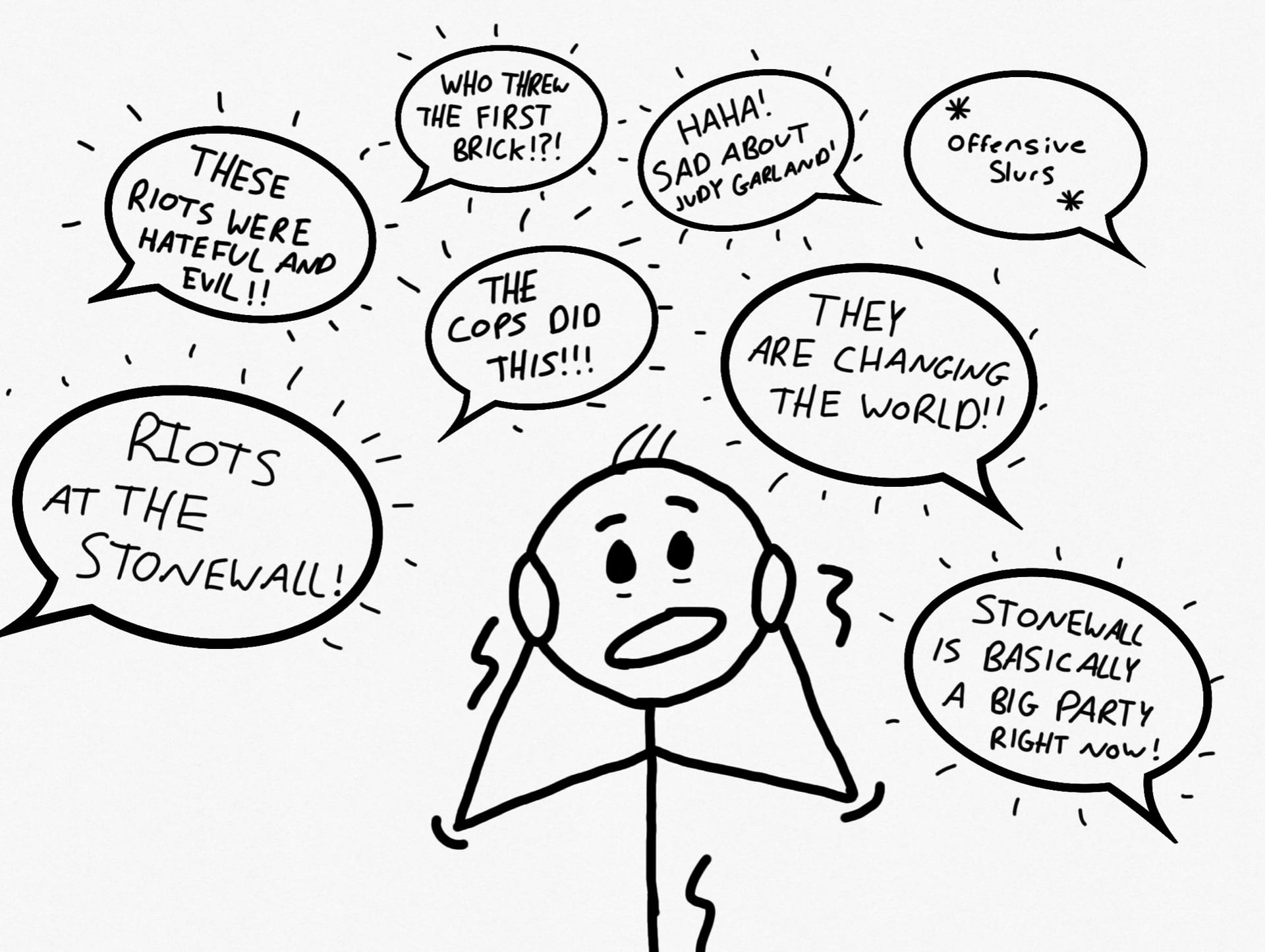When I say the word significance what do you think about? To some maybe they’re thinking of a significant other. Others might be thinking of something on a larger scale such as a political conflict.

Historically Significant Events
No matter what people picture though, we all recognize that significance represents a select thing that is important. This is the same for looking at the past to study history. While it may seem like everything in the past is history that is actually a misconception. The past is everything that has ever happened to anyone, anywhere, at anytime. History is selected significant moments or people that are notable, symbolic, and leave widespread impacts.
One of the most historically significant events in America (and North America as a whole) was the well known, iconic, Stonewall riots, now referred to as the Stonewall Rebellion. For those who aren’t familiar, in 1969 riots took place at the Stonewall Inn (a gay bar), which are heavily regarded as the beginning of formal LGBTQ+ activism in America. The police raided the bar, typical for gay bars at the time, but instead of running away, the customers and staff at Stonewall on June 28th 1969 fought back.

Famous Riot Photo
The riots continued for days and ended up turning into more of a party/protest rather than a constant violent riot. This was the big news story all over America at the time, similar to how the George Floyd Protests in 2020 gained massive media attention. Similarly to our current world, there was plenty of misinformation about the riots/protests or whatever people want to call it. To this day scholars still debate how long the riots officially lasted, but the most agreed upon answer is roughly 5 days. At the time people knew history was being made and that this was notable enough for people to be speaking about it decades later.

My Illustration of the public’s confusion surrounding Stonewall
One year after the raid, a group of LGBTQ+ activists commemorated the anniversary with what they called “Christopher Street Liberation Day”; this is now recognized as the first Gay Pride March. The events that took place at the stonewall on that night have been celebrated ever since and is considered the biggest factor in helping spark the modern LGBTQ+ civil rights movement. It created the well know Gay Pride marches and later on influenced Pride Month. The impact was clearly felt over the entire country and led to many activist groups being formed, however it was not just within the country as overseas in places such as the UK more and more LGBTQ+ activist groups started appearing. Now, decades later, the Stonewall Rebellion is given credit as a revolutionary turning point that ignited the gay rights movement.
- First Gay Pride March
- 2019 Gay Pride March
The stonewall riot story is so iconic, especially within the LGBTQ+ community, to the point that it’s practically a myth. There was so much misinformation and confusion that the story that stuck is not very accurate to the truth, however creates a great narrative to empower black trans women. The symbolic (and mostly fake) story goes: A drag Queen (who was upset about the death of Judy garland) decided to throw a brick at a police officer when the Stonewall Inn was being raided by police. This started a series of riots where drag queens and other members of the LGBTQ+ community would fight with police in full riot gear. There is a lot of twisting truths in that story but as it has become such a symbol for LGBTQ+ activism, many members of the community believe it is best to leave it that way, to keep its significance.
The riots represent the trend that was happening a lot in America at the time where oppressed people started fighting back and standing up for themselves and their rights, draws similarities to the Black Civil Rights Movement at a similar time. It was the beginning to what has grown into a huge movement to fight homophobia and its systemic issues in America and the rest of the world. These riots forever changed the course of history and made a huge step for all members of the LGBTQ+ community even to this day. It’s historical significance cannot be debated when there is so much evidence showing its importance and impact.
- MLK Protests
- A Gay Rights March





Leave a Reply